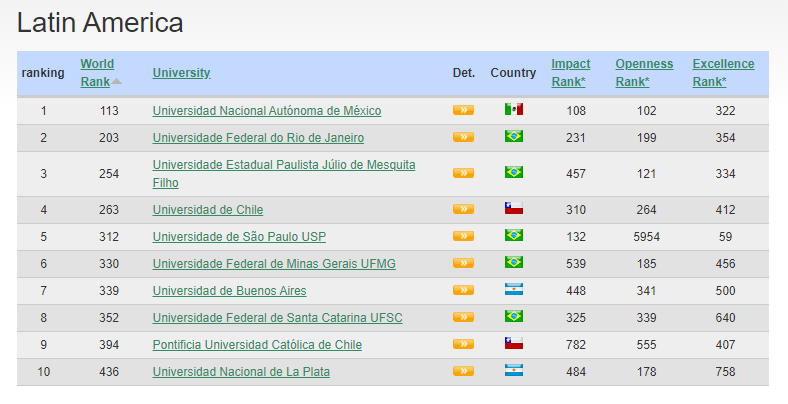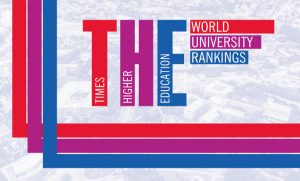 On 30 November, the Universidade Federal de Santa Catarina (UFSC) promoted the official launch of the UFSC Observatory, a platform for transparency and management support that integrates, in a single environment, data and information from various domains of the University.
On 30 November, the Universidade Federal de Santa Catarina (UFSC) promoted the official launch of the UFSC Observatory, a platform for transparency and management support that integrates, in a single environment, data and information from various domains of the University.
Representatives of the Ministry of Education, the state government, the National Association of Directors of Federal Higher Education Institutions (Andifes) and the Santa Catarina State Foundation for the Support of Research and Innovation (Fapesc) participated in the online ceremony.
The Rector Ubaldo Cesar Balthazar, the Vice-Rector Cátia Regina de Carvalho Pinto, prorectors, secretaries, school deans, heads of departments, undergraduate and graduate program coordinators, students, faculty, and administrative staff from UFSC also participated. The web conference was streamed on YouTube.
The online ceremony was opened by the Rector, Ubaldo Cesar Balthazar, who greeted those present and shared an overview of the Observatory. “The purpose of this platform is to provide an overview of the most varied topics, relevant not only to university management but also to the academic community, control bodies and society as a whole.” The Observatory debuts this Tuesday with more than 300 indicators on 21 areas of activity at UFSC, and will be gradually expanded.
Dream and courage
UFSC’s Secretary for Innovation, Alexandre Moraes Ramos, said that the Observatory is a project linked to a dream and a courage. The dream of former Rector Luiz Carlos Cancellier de Olivo, who, upon taking office, expressed his desire to create a tool to modernize management and provide transparency to UFSC’s actions, and the courage of Rector Ubaldo Balthazar to move the project forward, bring the team together and implement the proposal.
Alexandre Ramos also stated that the Observatory will support medium and long-term strategic decisions to make management more efficient and prepare UFSC to be competitive at a global level. The Secretary for Innovation recalled the fact that UFSC was recently placed among the three most innovative universities in Brazil and stated that the moment is one of digital transformation.
Fernando Richartz, Secretary for Planning and Budget, presented some panels and data from the Observatory, which launched with 106 decision support dashboards and more than 300 indicators on 21 areas of UFSC, including teaching, research, outreach, administrative management, types of admission, among others. He mentioned UFSC’s initiatives to give back to society, informing that the outreach actions involved more than 3 million people from 2017 to 2021. He also highlighted the availability of UFSC’s budget data on the platform, meeting a demand from society and from governmental and non-governmental control bodies for transparency in the use of public resources allocated to the University.
Next steps
The Secretary also presented what the Observatory’s next steps should be, including automating the platform’s feeding processes as much as possible; incorporate new panels and themes according to user interaction; increase partnerships with other institutions and provide cross-referencing of information with other databases; and foster the internationalization of the Observatory, presenting the platform in other languages and incorporating Artificial Intelligence mechanisms. Fernando Richartz also informed that the Observatory will have a physical structure, located at the Rectorate Building Hall, for displaying the panels.
 Then, the floor was passed to the representatives of the entities present. The president of FAPESP, Fábio Zabot Holthausen, told the Rector that having a tool like the Observatory is every manager’s dream. FAPESP provided the “seed capital” for the project, funded through resources from a Call for Proposals in support of the State’s Technological Innovation Centers (NITs). “We are very happy when we see the use of resources bringing innovation, bringing effectiveness and efficiency,” said Zabot.
Then, the floor was passed to the representatives of the entities present. The president of FAPESP, Fábio Zabot Holthausen, told the Rector that having a tool like the Observatory is every manager’s dream. FAPESP provided the “seed capital” for the project, funded through resources from a Call for Proposals in support of the State’s Technological Innovation Centers (NITs). “We are very happy when we see the use of resources bringing innovation, bringing effectiveness and efficiency,” said Zabot.
Professor Gustavo Balduíno, Executive Secretary of Andifes, highlighted that UFSC managed, in this period of difficulties, after several months of pandemic, to present a quality project. “The resources allocated at the university bring concrete results to society,” said Balduíno. He informed that Andifes intends to launch the Ecograd system shortly, a panel that will gather information about all federal universities in the country.
Social Accountability
The State Controller General, Cristiano Socas da Silva, representing the state government, congratulated UFSC for carrying out the project. A graduate of the institution, he called the Observatory “a magnificent platform”. “UFSC is already a source of pride for being a reference in research, teaching and outreach, now it presents this model of good management practices and public transparency”, he said. The Controller also mentioned initiatives by the state government to make management transparent. “Social accountability is the best and least expensive of controls,” he said.
Eduardo Gomes Salgado, Secretary for Higher Education at the Ministry of Education, pointed out that, in addition to transparency, the Observatory brings an immense opportunity for research on UFSC’s own data. “UFSC’s governance and transparency are growing and the governmental and non-governmental control bodies have noticed this”, he said.
Vice-Rector Cátia Regina de Carvalho Pinto said that, as a manager, she was very pleased to participate in the launch of the Observatory. She highlighted that UFSC has been innovative over the years, especially during the pandemic period. “We continue dedicating ourselves to science, knowledge and the defense of life”, said the Vice-Rector.
At the end of the virtual ceremony, the Rector Ubaldo Balthazar made an analogy with the world of theater: “Open the curtains and let the show begin”, said the Rector. He mentioned the former Rector Cancellier again. “It was during his administration that everything started and, with a lot of work and competence of the teams involved, in our administration we implemented this project”.
According to the Rector, the Observatory represents a new era in university management, “which increasingly strengthens our mission, which is to produce, systematize and socialize philosophical, scientific, artistic, and technological knowledge, broadening and deepening students’ education for the professional practice, critical thinking, and national and international solidarity with a view to building a just and democratic society and also guaranteeing quality of life”.
Watch the launch ceremony.
Translated by SINTER/UFSC.
Read the original article here.






 Developed to be a first experience for international visitors before arriving in Brazil, and an important tool in the University’s internationalization process, the Brazilian Portuguese Survival Course arose from a clear need: a large number of international students at UFSC enter and leave the institution without learning to speak Portuguese. With this in mind, the staff from the Office of International Relations (Sinter) united their ideas and experiences with the technical expertise of the Office of Distance Education (Sead) to develop a 100% asynchronous Portuguese language course, fully adapted to situations that take place at the Universidade Federal de Santa Catarina (UFSC).
Developed to be a first experience for international visitors before arriving in Brazil, and an important tool in the University’s internationalization process, the Brazilian Portuguese Survival Course arose from a clear need: a large number of international students at UFSC enter and leave the institution without learning to speak Portuguese. With this in mind, the staff from the Office of International Relations (Sinter) united their ideas and experiences with the technical expertise of the Office of Distance Education (Sead) to develop a 100% asynchronous Portuguese language course, fully adapted to situations that take place at the Universidade Federal de Santa Catarina (UFSC).



 The Universidade Federal de Santa Catarina (UFSC) was a finalist in the
The Universidade Federal de Santa Catarina (UFSC) was a finalist in the  The recognition of UFSC as one of the most innovative universities in Brazil demonstrates that actors in the country’s innovation and entrepreneurship ecosystem perceive the university as an engine of technological development, sought to create solutions that meet the demands of various sectors of civil society. The Office of Innovation (SINOVA) is also responsible for managing the intellectual property assets from the institution’s organic body, and has been working on prospecting projects with the potential to become startups.
The recognition of UFSC as one of the most innovative universities in Brazil demonstrates that actors in the country’s innovation and entrepreneurship ecosystem perceive the university as an engine of technological development, sought to create solutions that meet the demands of various sectors of civil society. The Office of Innovation (SINOVA) is also responsible for managing the intellectual property assets from the institution’s organic body, and has been working on prospecting projects with the potential to become startups.
 The Times Higher Education (THE) has published on Wednesday, 28 October, the results of the World University Rankings 2021 by Subject, listing the broad areas with the best performances in the top universities in the world. The Universidade Federal de Santa Catarina (UFSC) was one of the 1.512 universities evaluated and it was best ranked in the areas of Health and Education. In both subjects, UFSC was ranked 301-400 overall and was among the eight best universities in Brazil.
The Times Higher Education (THE) has published on Wednesday, 28 October, the results of the World University Rankings 2021 by Subject, listing the broad areas with the best performances in the top universities in the world. The Universidade Federal de Santa Catarina (UFSC) was one of the 1.512 universities evaluated and it was best ranked in the areas of Health and Education. In both subjects, UFSC was ranked 301-400 overall and was among the eight best universities in Brazil.